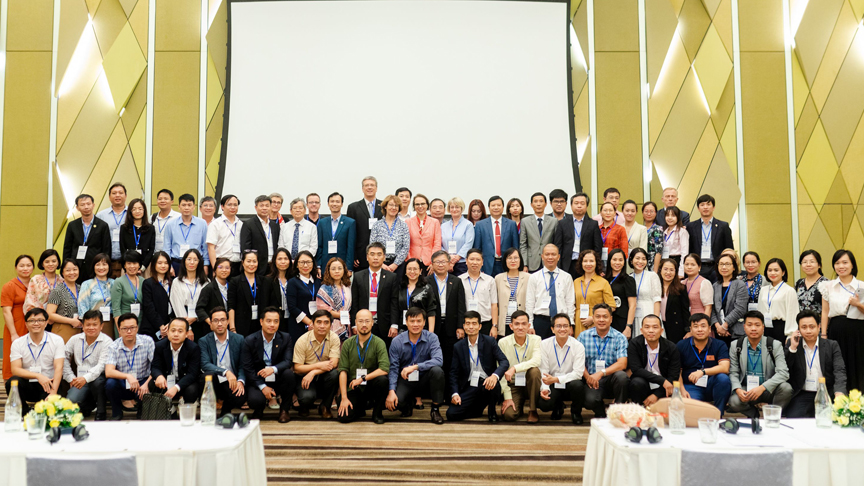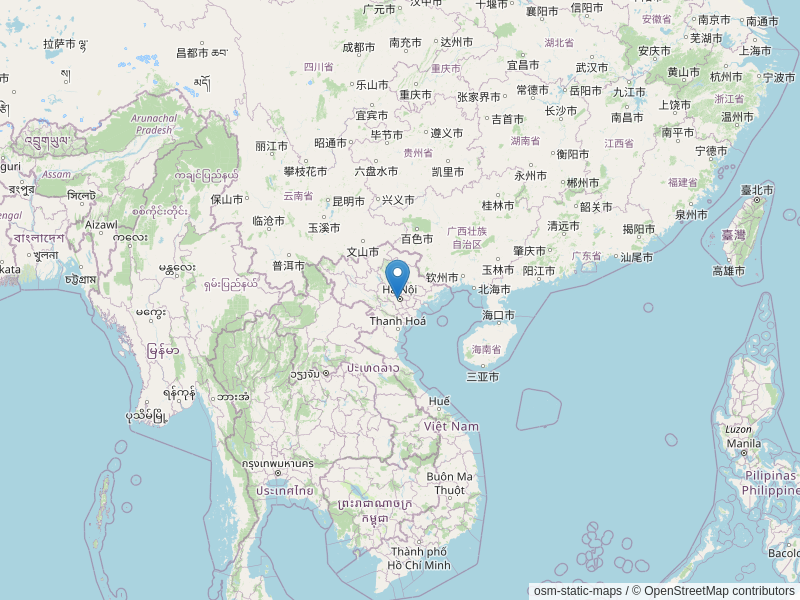The Implementation of Internationalisation of Higher Education in Germany and Vietnam

The German Academic Exchange Service (DAAD) Regional Office Hanoi conducted in collaboration with Hanoi University of Science and Technology (HUST) a workshop on 1st and 2nd December 2022 in Da Nang City on the topic of “The Implementation of Internationalisation of H.E. in Germany and Vietnam”. During the eight presentations and in the working groups, the 90 participants from 50 universities in Vietnam and Laos discussed the topics from different perspectives and came up with some important results which will be summarized hereinafter:
- Sufficient human and financial resources, especially at the International Offices, are crucial for an ever more extensive internationalisation of universities in all their dimensions, starting with the exchange of students and teachers (inbound and outbound) through the development of university cooperation and international research collaboration to topics such as Internationalisation@home, international higher education marketing or transnational education. The more a university internationalises, the more resources have to be made available. Otherwise, the desired goals cannot be achieved.
- Communication: Good, quick and informative communication is essential in order to place the topic of “internationalisation” in a targeted manner both within a university and in cooperation with external partners. For example, partners expect quick answers to inquiries, even if they cannot give a concrete answer at first. But continuous communication creates trust.
- Mutual trust is very important, especially while working with partners from other countries and cultures. The cultural differences as well as the differences in work processes, administrative procedures or in communication can be overcome much more easily through mutual trust. Trust is gained through good and regular communication, through reliability, through getting to know each other personally and through mutual understanding.
- Motivation, especially in the faculties: International cooperation in teaching and research is carried out in the faculties, the International Offices “only” function as supporting service units. The motivation of teachers and researchers in the faculties for internationalisation and their commitment are urgently needed to make teaching and research at universities international. This motivation is achieved primarily through the personal and institutional added value of international cooperation. The International Offices can support relevant ideas and suggestions as well as bring in their own ideas and suggestions through good internal communication.
- 80/20 rule: Some teachers and researchers have little interest in internationalisation. Trying to convince this group of maybe 20 percent would involve an enormous amount of effort and would still not promise success. Therefore, one should focus on those who are open to international cooperation.
- The leadership of a university and of the faculties should always be involved, as their support is essential for internationalisation measures. If you have their support, projects can often be implemented much more easily.
- The quality of teaching and research is essential for sustainable cooperation with international partners. Quality assurance measures and accreditations are prerequisites for winning partners and cooperating with them in the long term.
- English language skills are another basic requirement for the successful internationalisation of universities. This applies in particular to teachers, researchers and students who study at international universities or want to cooperate with foreign partners. This requirement leads to great challenges, especially at universities outside of the Vietnamese metropolises, since the opportunities to learn English well there are sometimes very limited.
- Key Performance Indicators (KPI) can and should be used as an important tool to evaluate the success of internationalisation measures because internationalisation is not an end in itself, but primarily serves to improve quality in teaching and research.
- Expectation management for inbound mobility: International students who will study at a Vietnamese university should be well prepared for their study visit. The expectations should be assessed realistically so that there are no disappointments and thus a bad evaluation of the stay. The different motivations for studying in Vietnam should be taken into account: While students from neighboring countries (mainly Cambodia and Laos) expect better study opportunities in Vietnam than at home, students from highly developed countries primarily combine an intercultural experience with a study visit to Vietnam, whereby credits must be recognized in the home country so that there is no loss of time during their studies.
- Finally: Internationalisation is an institutional imperative for the entire university and a cross-sectional task across all areas of a university.










